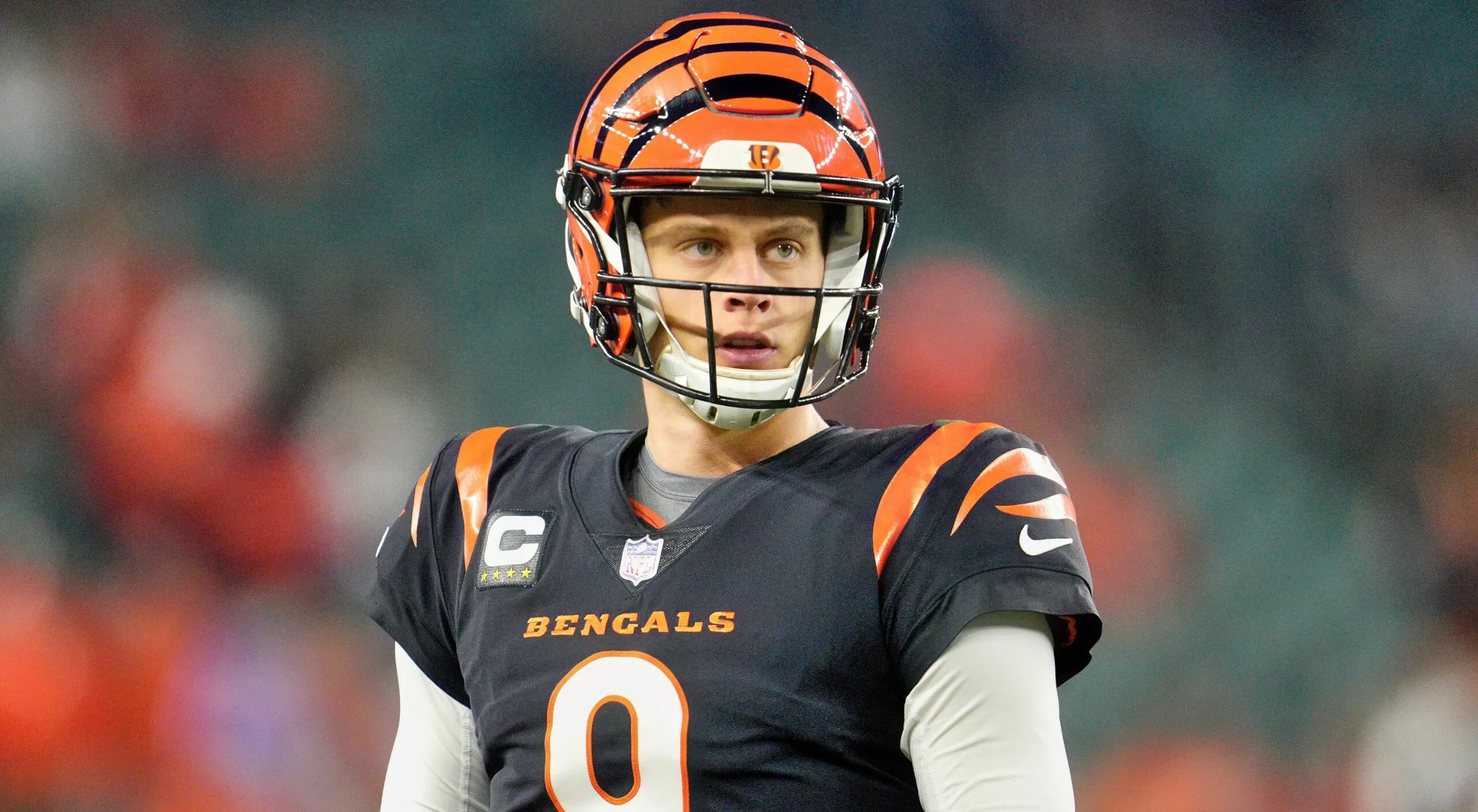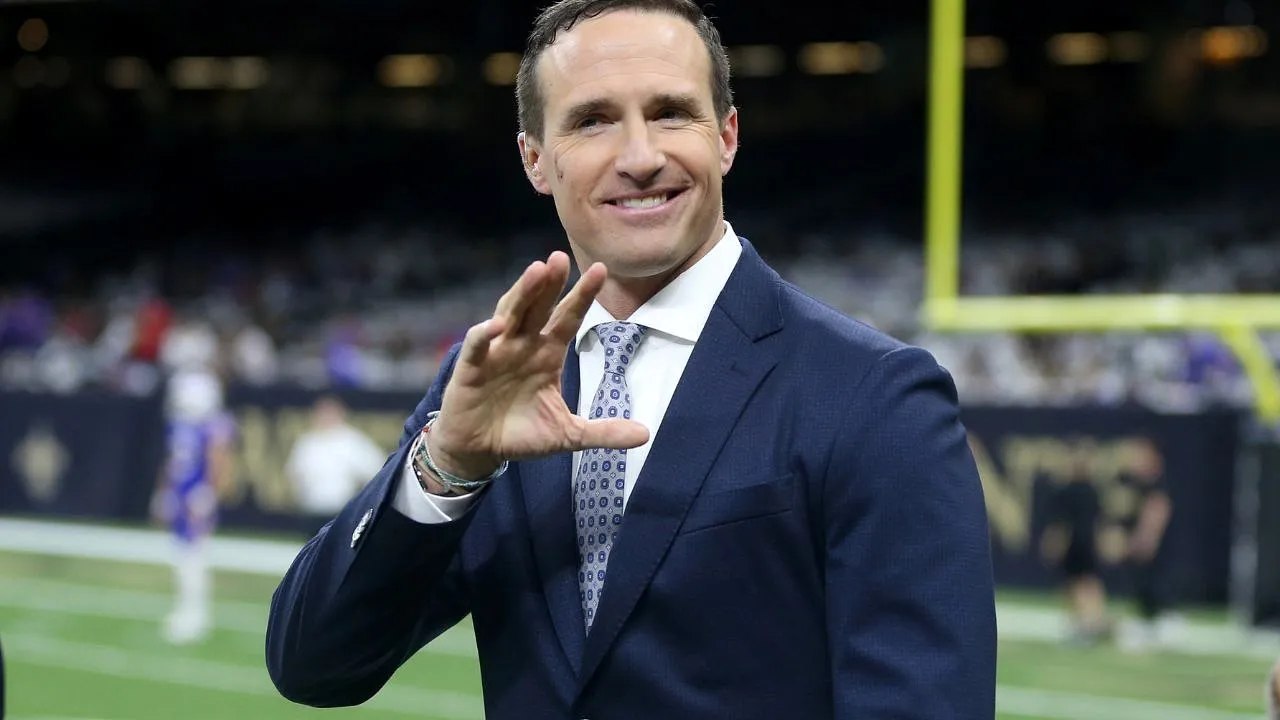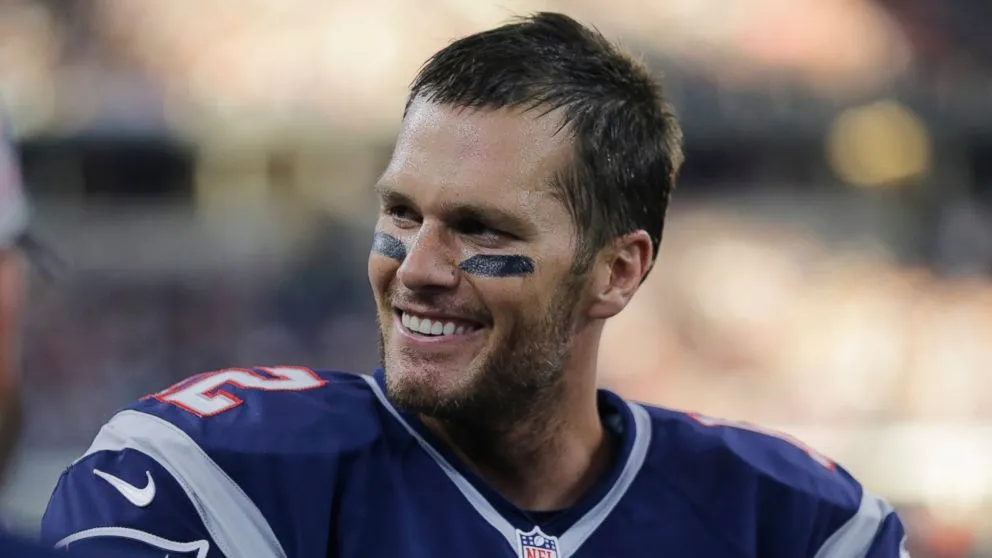

Why Joe Burrow Could Surpass Drew Brees in Every Way Before He Even Hangs Up His Cleats
When Joe Burrow first stepped onto an NFL field, comparisons to some of the league’s greatest quarterbacks came almost instantly. His calm demeanor, precise passing, and ability to elevate his team drew parallels to legends like Drew Brees — a quarterback celebrated not just for his on-field brilliance but for his leadership and relentless work ethic. However, as Burrow’s career progresses, there is growing sentiment that he might not only match Brees’ legacy but potentially surpass it in every way before he even considers retirement.

The idea may sound ambitious given Brees’ Hall of Fame credentials: a Super Bowl championship, multiple NFL records, and a reputation as one of the most accurate passers in league history. But the NFL is constantly evolving, and Burrow’s career trajectory suggests he could redefine the standard for quarterback excellence.
The Early Rise of Joe Burrow Compared to Drew Brees’ Development
Drew Brees entered the NFL in 2001, facing early skepticism about his size, arm strength, and ability to succeed in a league dominated by taller, stronger passers. His initial seasons with the San Diego Chargers were marked by growing pains, and it wasn’t until he joined the New Orleans Saints in 2006 that his career truly ignited. Brees’ rise was steady but required years of experience and the perfect pairing with head coach Sean Payton to reach its peak.
Joe Burrow, by contrast, has shown an accelerated curve. After a historic college season at LSU — one of the greatest campaigns ever for a college quarterback — he entered the NFL with sky-high expectations. Even after a devastating knee injury during his rookie season, Burrow returned with poise and efficiency, leading the Cincinnati Bengals to their first Super Bowl appearance in over three decades by his second full season. That kind of turnaround is not just remarkable; it’s an early sign that Burrow may be on a faster and more dominant path than Brees ever was at a similar stage.
Leadership That Transcends the Field
One of Brees’ most enduring qualities was his leadership, both in the locker room and in the community. In New Orleans, he became a symbol of resilience after Hurricane Katrina, helping to inspire an entire city. His influence extended far beyond the box score, earning him universal respect from teammates, coaches, and opponents alike.
Burrow possesses that same intangible leadership quality, but his version carries a different edge. While Brees was the inspirational, unwavering veteran voice, Burrow combines calm confidence with an almost icy competitive demeanor. His famous line, “If you see me smoking a cigar after a win, we’re not done yet,” reflects a mentality that resonates deeply with both his teammates and fans. It’s not just that he leads — it’s how he leads. He brings swagger without arrogance, determination without desperation. In an era when player empowerment and brand-building are part of the game, Burrow navigates these waters with a rare authenticity that could make his leadership impact even greater over time.
Statistical Potential That Could Outpace a Hall of Famer
Drew Brees retired holding the NFL record for most career passing yards and completions, while ranking second in touchdowns. His statistical dominance was the product of consistency, longevity, and an offensive system built to maximize his skill set. Brees’ precision was unmatched, and his career completion percentage of 67.7% remains a benchmark.
However, Joe Burrow’s efficiency numbers already suggest he could surpass Brees in key statistical categories if he stays healthy. His completion percentage in his early seasons rivals or even exceeds Brees’ peak years, and his yards per attempt indicate a greater willingness to push the ball downfield while maintaining accuracy. Furthermore, the offensive talent surrounding Burrow — with elite receivers like Ja’Marr Chase and Tee Higgins — creates an environment ripe for staggering production. If the Bengals’ offensive line continues to improve, Burrow’s statistical ceiling could climb even higher than Brees’ legendary numbers.
The Impact of Era and Offensive Evolution
When Brees played, the NFL was in the midst of becoming a pass-heavy league, but it still retained elements of balance between run and pass. Defensive schemes were aggressive, and rules protecting quarterbacks were less stringent than they are today. While Brees benefited from certain offensive trends, his numbers were still shaped by the physicality of the game.
Burrow is entering his prime in an era where the passing game dominates, rules favor quarterback safety, and offensive creativity is at an all-time high. This reality gives him opportunities Brees didn’t always have — not just to pile up passing yards but to do so efficiently, with minimal exposure to the type of hits that shorten careers. With advanced analytics guiding play-calling and player usage, Burrow is positioned to exploit defensive weaknesses in ways that could push his statistical output into uncharted territory.
Playoff and Championship Outlook
One area where Brees may hold an edge — for now — is postseason success. While he delivered the New Orleans Saints their first and only Super Bowl victory in 2009, playoff disappointments in later years somewhat marred his postseason legacy. Despite brilliant performances, his career featured several heartbreaking exits that kept him from adding to his championship tally.
Burrow has already shown an ability to thrive in the postseason spotlight. Leading the Bengals to the Super Bowl so early in his career has set a precedent, and the team’s core is young enough to sustain multiple runs. If Burrow can secure even two championships over the next decade, the conversation shifts dramatically. Championships, after all, are the currency of quarterback legacies. And given his poise under pressure, Burrow has the potential to win more than one — a feat that would instantly place him above Brees in the eyes of many fans and analysts.
Cultural and Generational Influence
Beyond numbers and titles, Brees was a role model for a generation of players and fans. His presence in New Orleans symbolized hope, stability, and class. Yet, his era didn’t have the same social media reach and cultural immediacy that defines sports today.
Burrow, however, plays in a time when every game, every moment, and every word can go viral within seconds. His fashion choices, press conference quotes, and even his warm-up routines have become part of his brand. Younger fans connect with him not only as an athlete but as a personality. This cultural relevance is a form of influence that Brees, through no fault of his own, simply couldn’t match in the same way. If Burrow uses this platform effectively, his cultural impact could extend well beyond the game — into areas like philanthropy, activism, and entrepreneurship — giving him a multidimensional legacy.
The Importance of Health and Longevity
One of Brees’ most remarkable traits was his durability, especially after overcoming a severe shoulder injury early in his career. He maintained elite performance into his forties, setting a high bar for longevity. For Burrow to surpass Brees, staying healthy will be paramount. His early knee injury was a reminder of the physical risks inherent in the game, but his recovery and return to form demonstrated resilience.
With modern sports medicine, nutrition, and recovery technology, Burrow has every reason to believe he can sustain a high level of play for 15–20 years. If he does, and if his prime years continue to produce elite numbers and deep playoff runs, surpassing Brees becomes more than possible — it becomes probable.
The Intangible “It” Factor
Statistics, rings, and leadership qualities are all measurable to some degree, but there’s an unquantifiable element that separates great quarterbacks from legends. Brees had it — a relentless drive, an ability to make teammates believe, and a knack for delivering in big moments.
Burrow has shown flashes of possessing that same intangible quality, but with a modern twist. His composure borders on unshakable; whether he’s down two touchdowns in the AFC Championship or leading a routine drive in the first quarter, his demeanor rarely changes. That psychological steadiness is contagious. Defenses know they can’t rattle him, and teammates know he won’t panic. It’s the kind of quality that, when paired with his physical skills, can create a career arc that not only matches but eclipses that of Brees.

The Verdict: A Path to Surpassing a Legend
It’s important to acknowledge that Drew Brees is a once-in-a-generation quarterback whose legacy is secure. His career was defined by excellence, perseverance, and a deep connection to his team and city. Surpassing such a figure is no small task. Yet, Joe Burrow’s early accomplishments, combined with his leadership style, statistical potential, cultural influence, and championship outlook, paint a picture of a quarterback who could finish his career in an even loftier position.
If Burrow continues on his current trajectory — avoiding major injuries, sustaining elite performance, and capitalizing on the opportunities of the modern NFL — he could retire with more championships, superior statistics, and a broader cultural legacy than Brees. And if that happens, the conversation about the greatest quarterbacks of all time will need to make room for a new name near the very top: Joe Burrow.


















